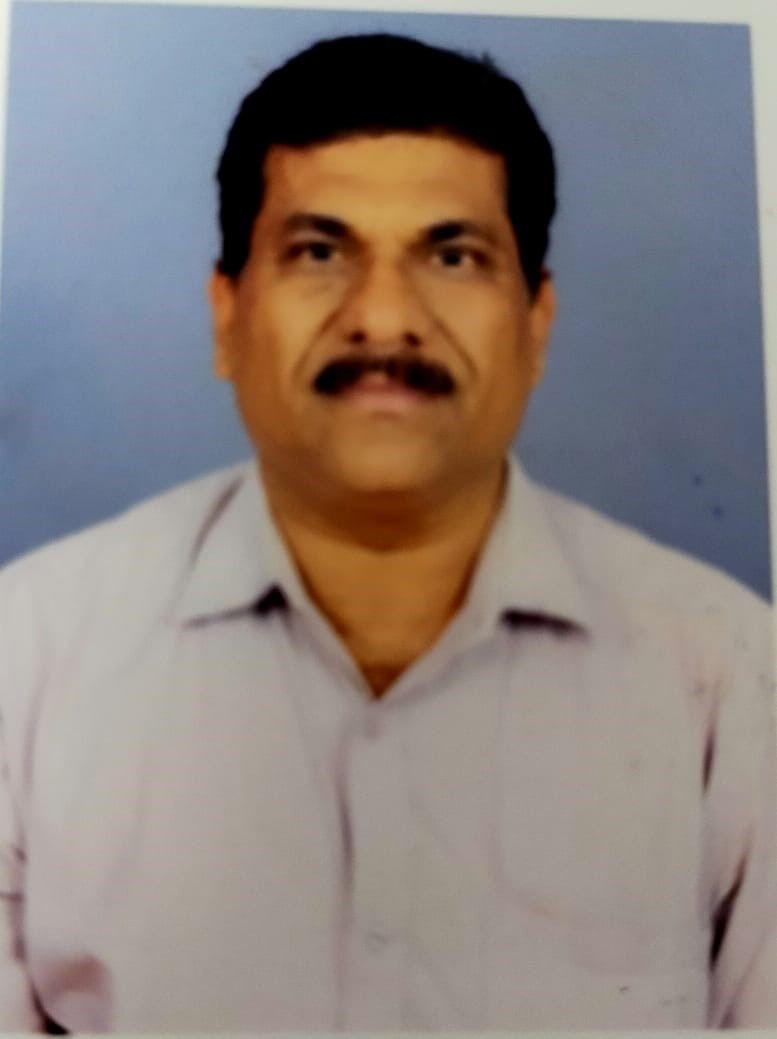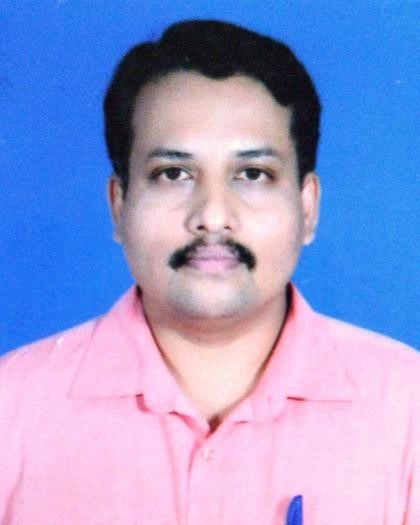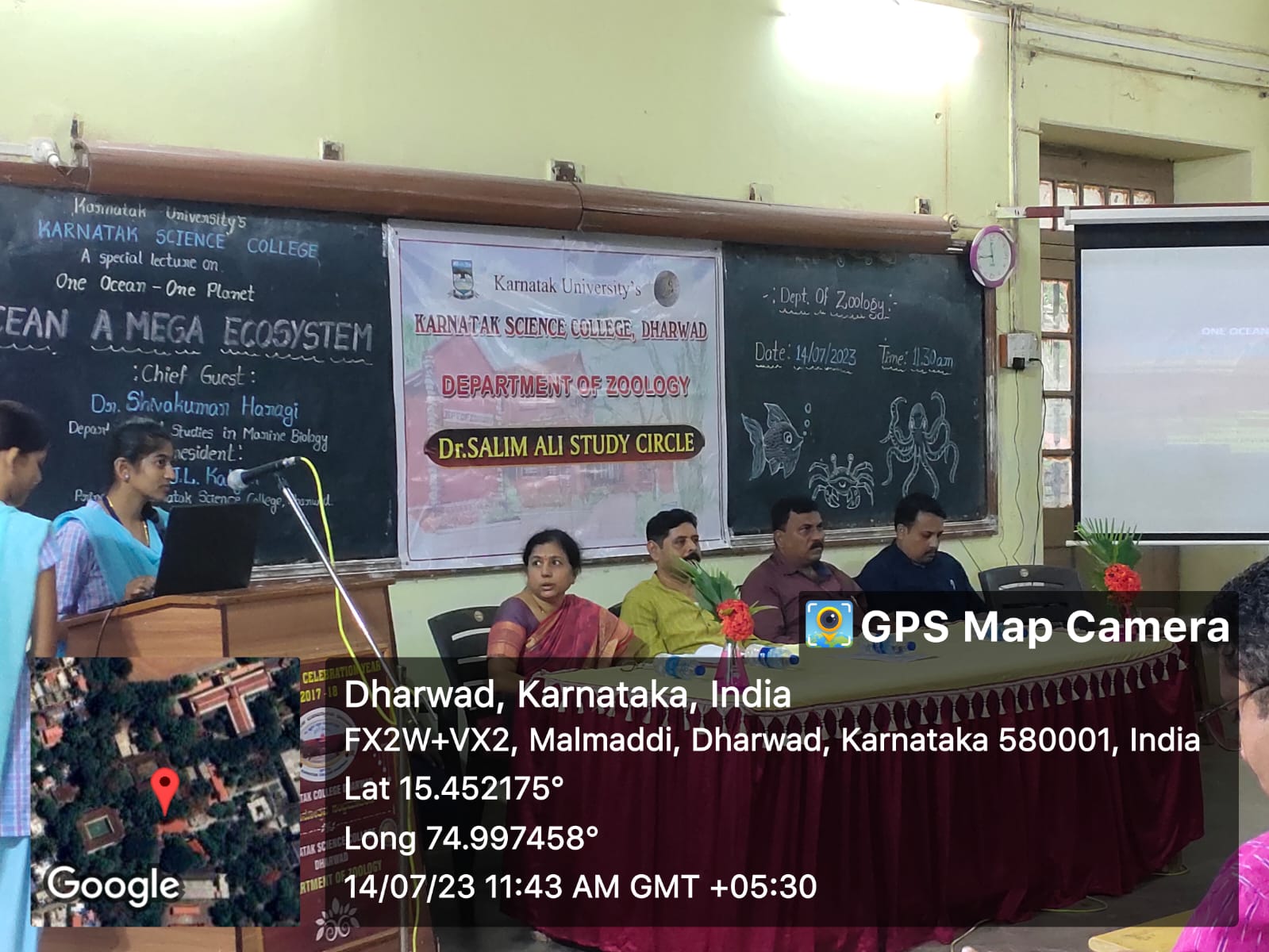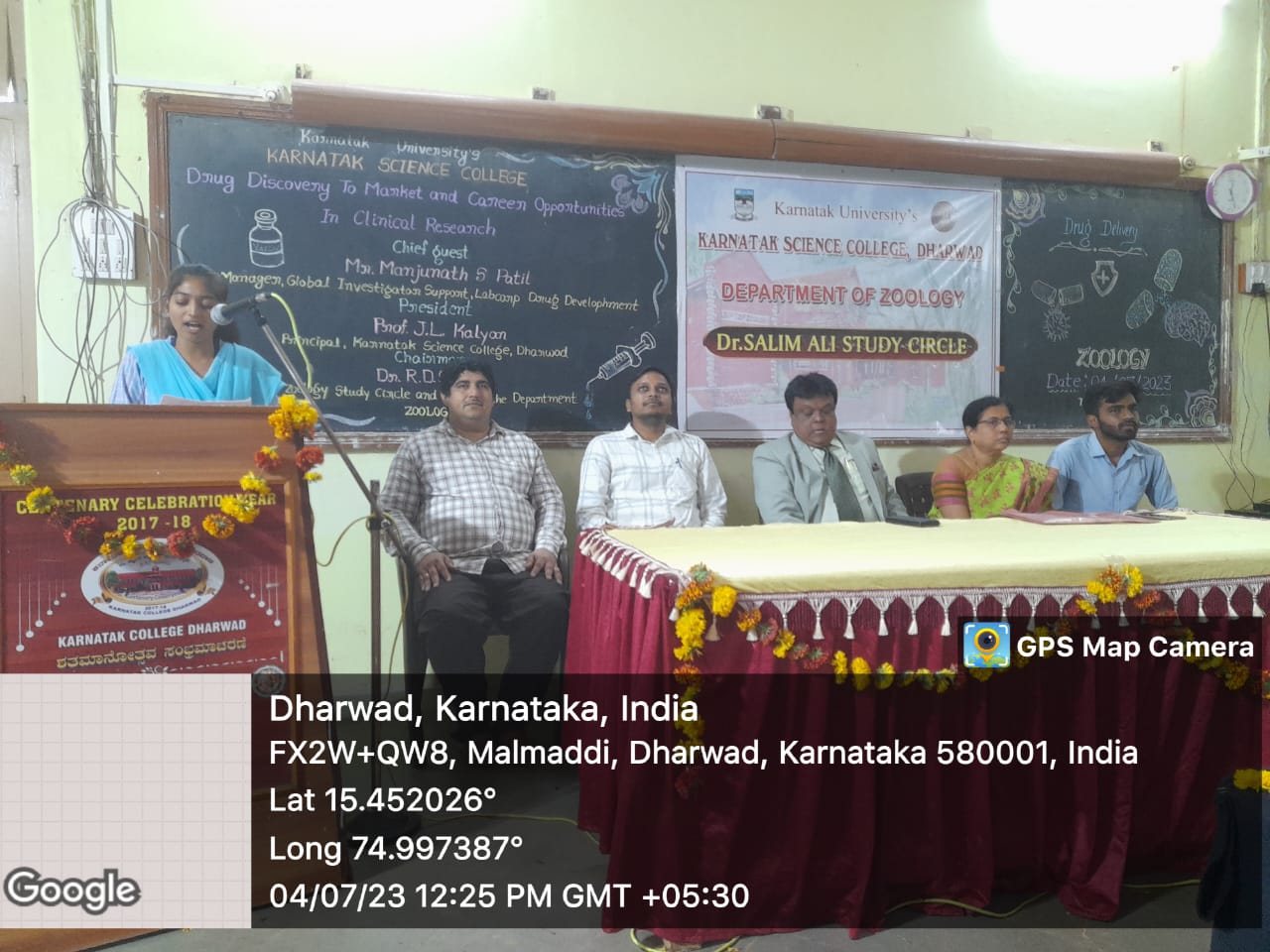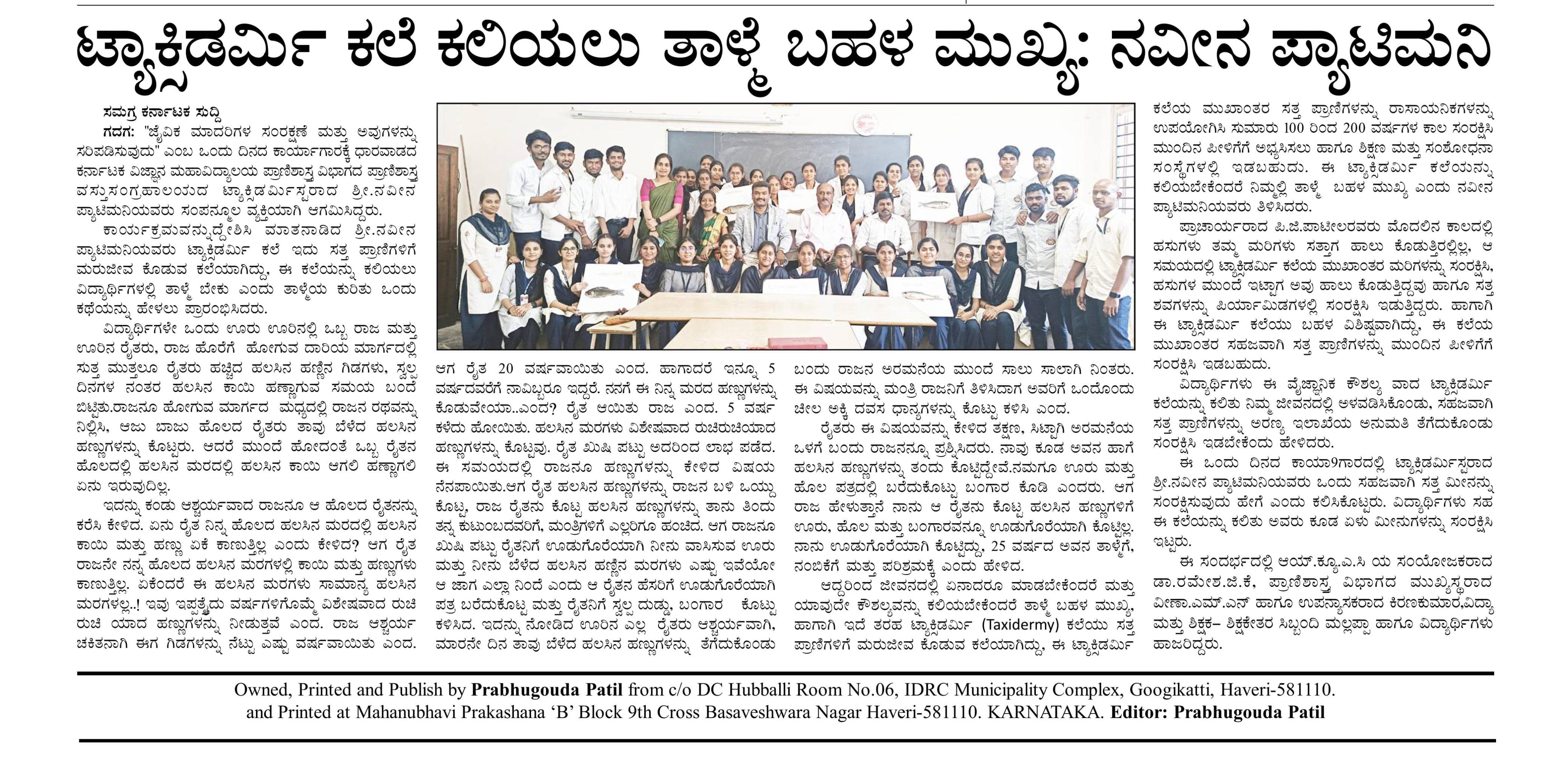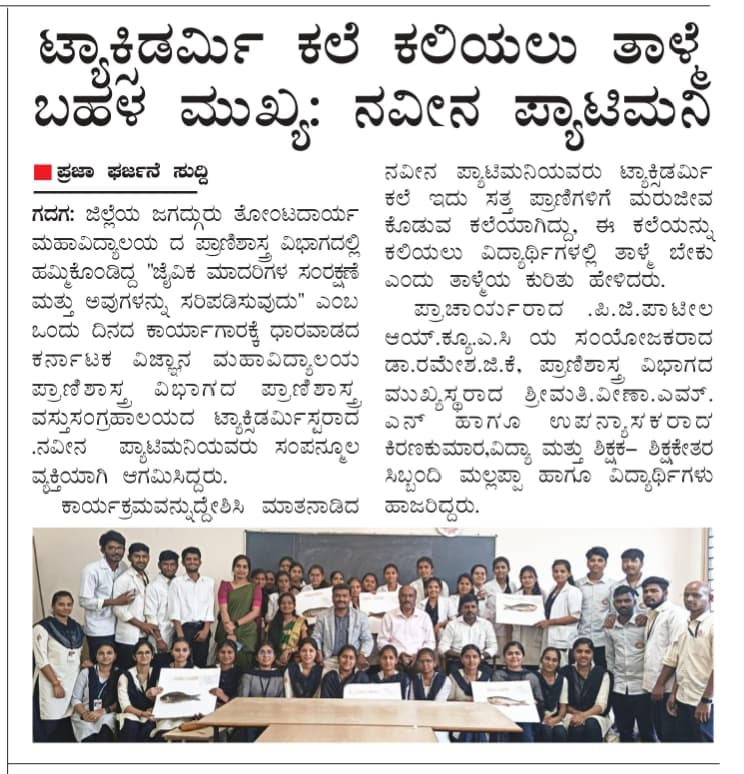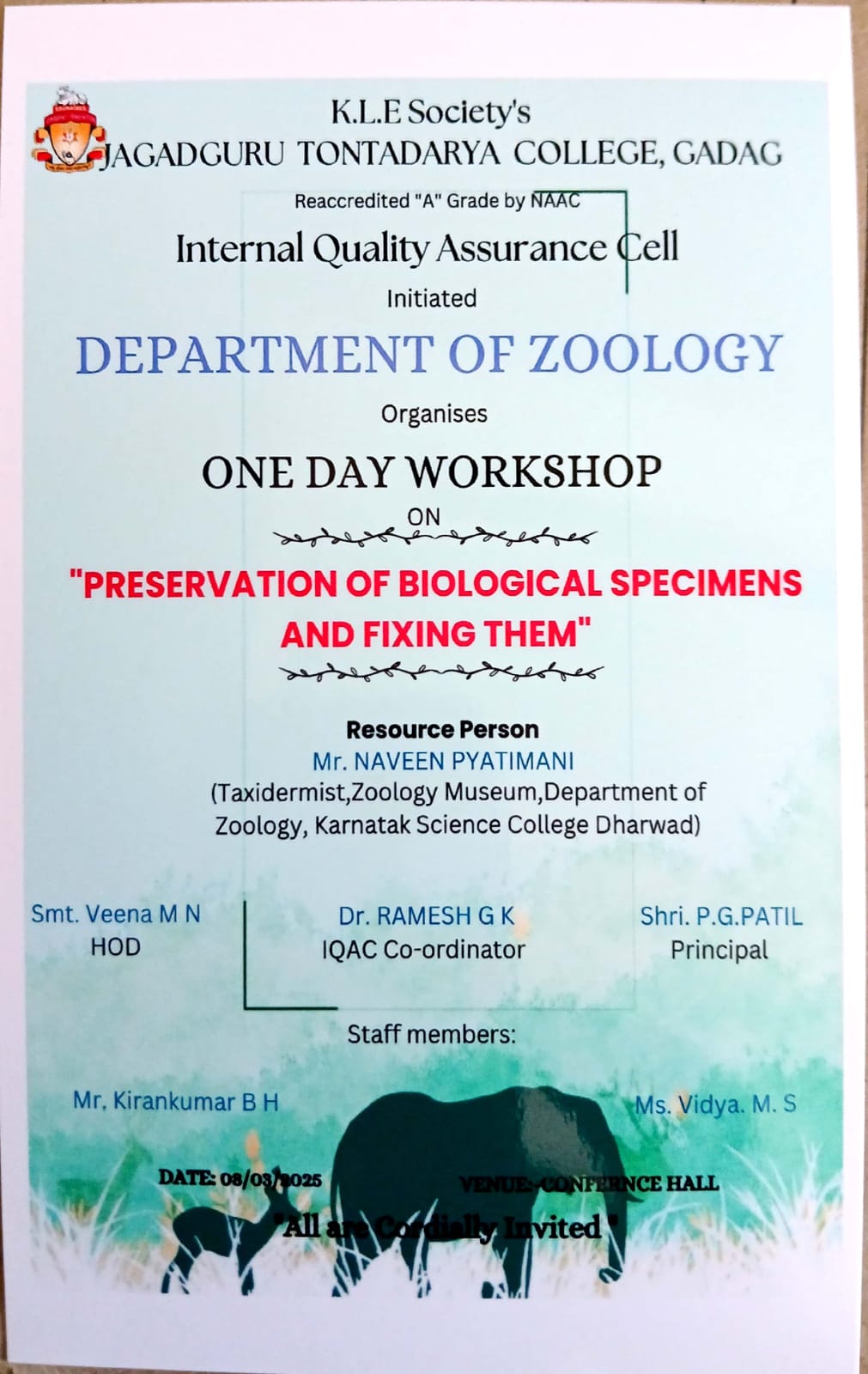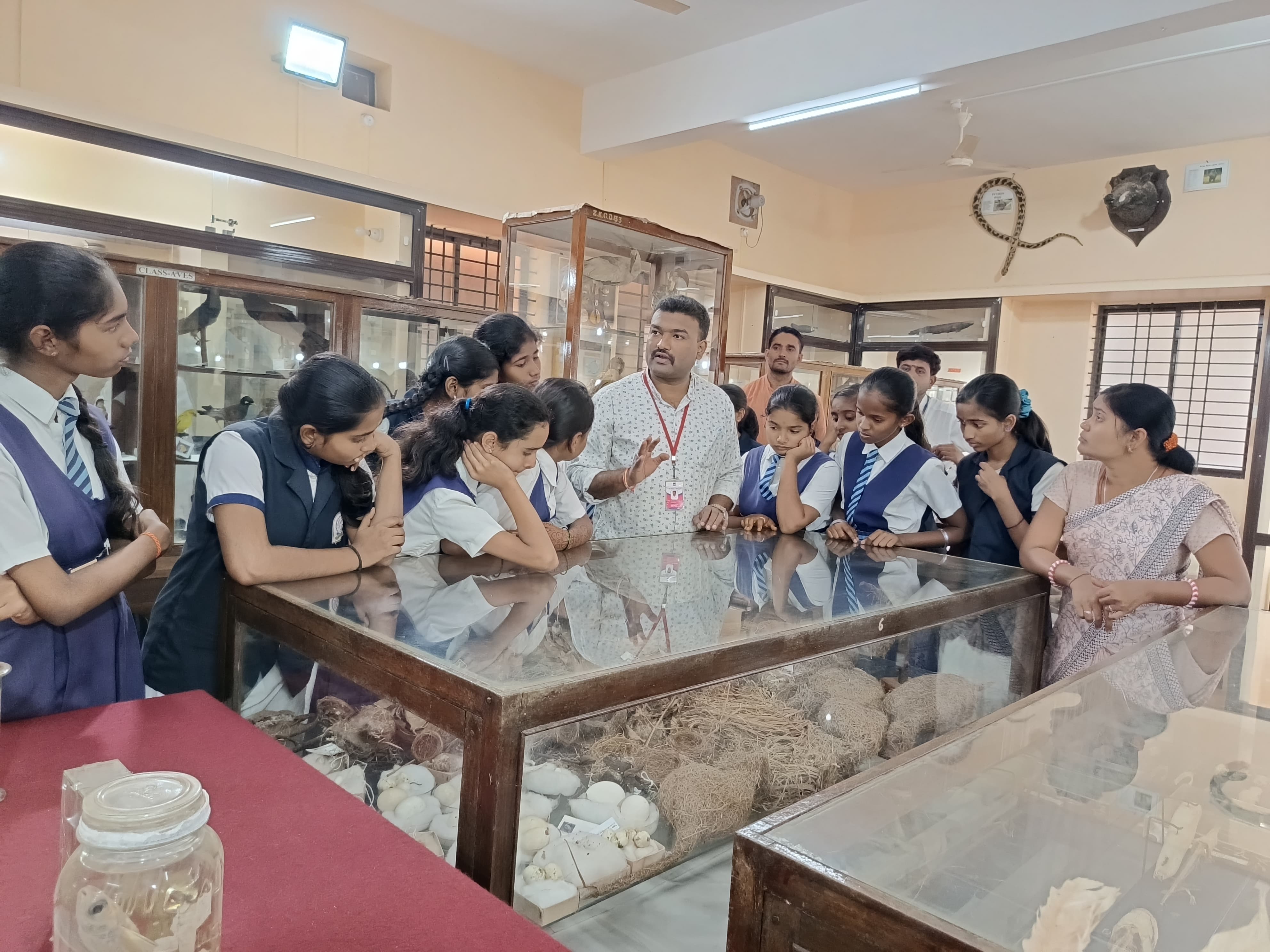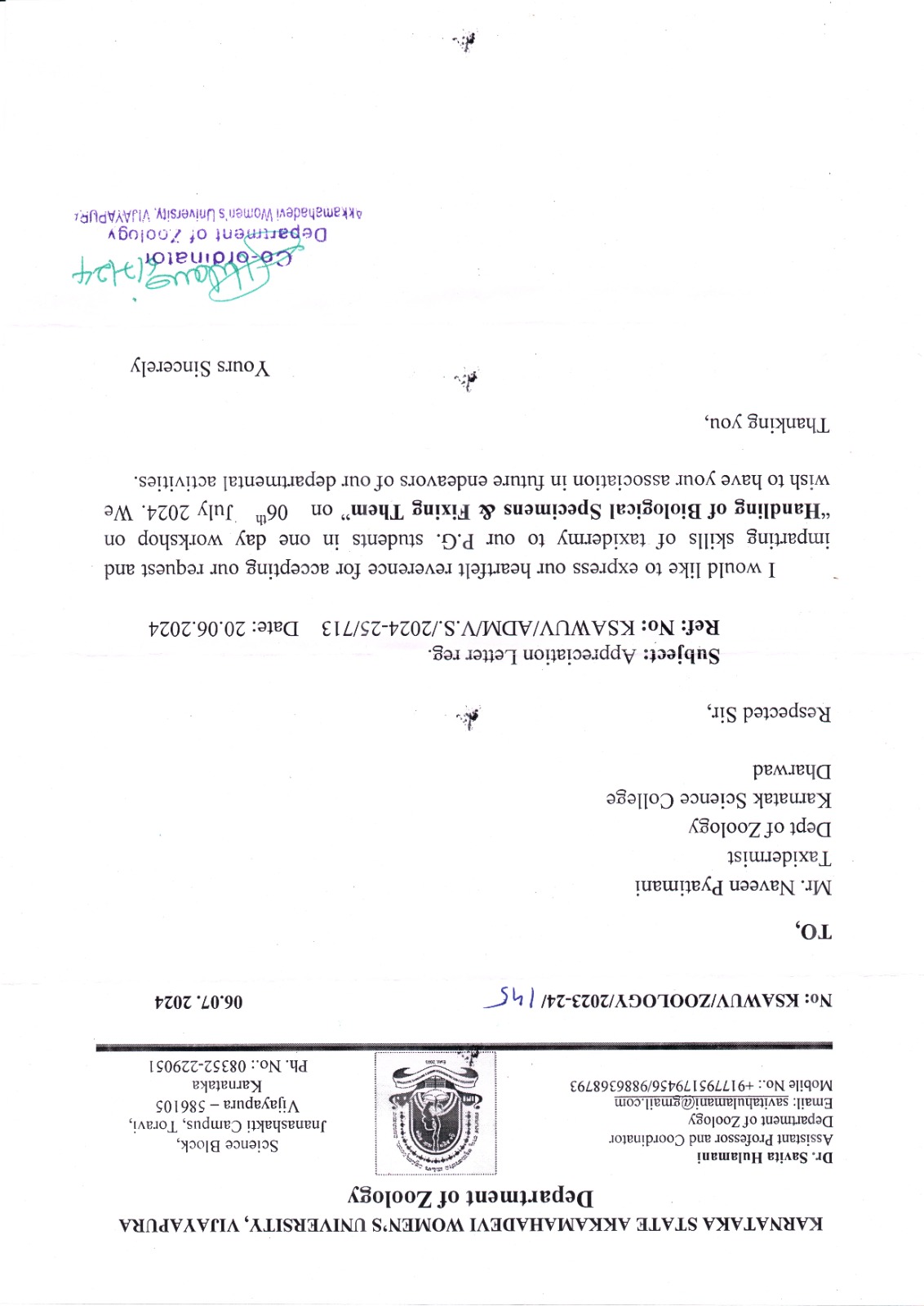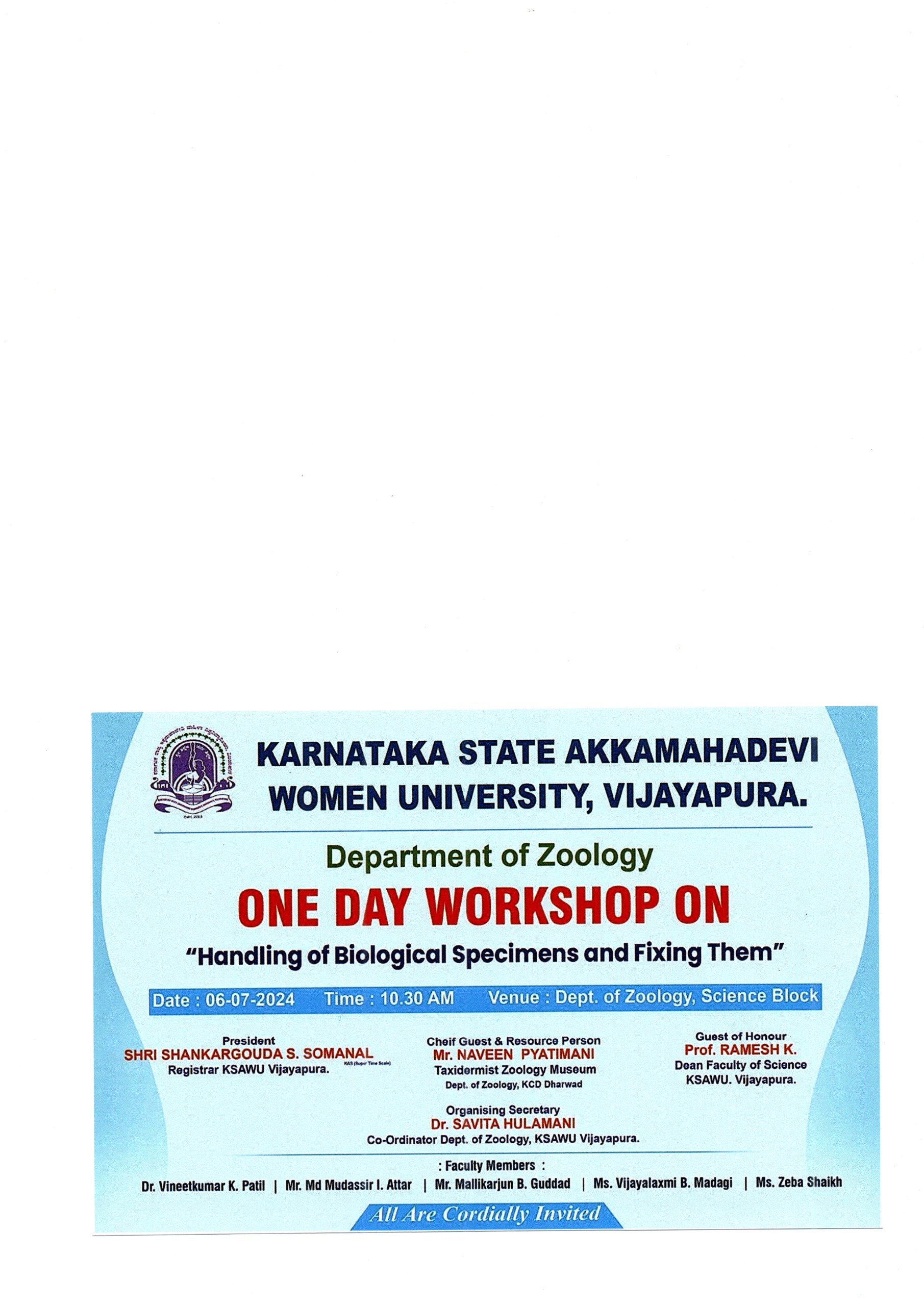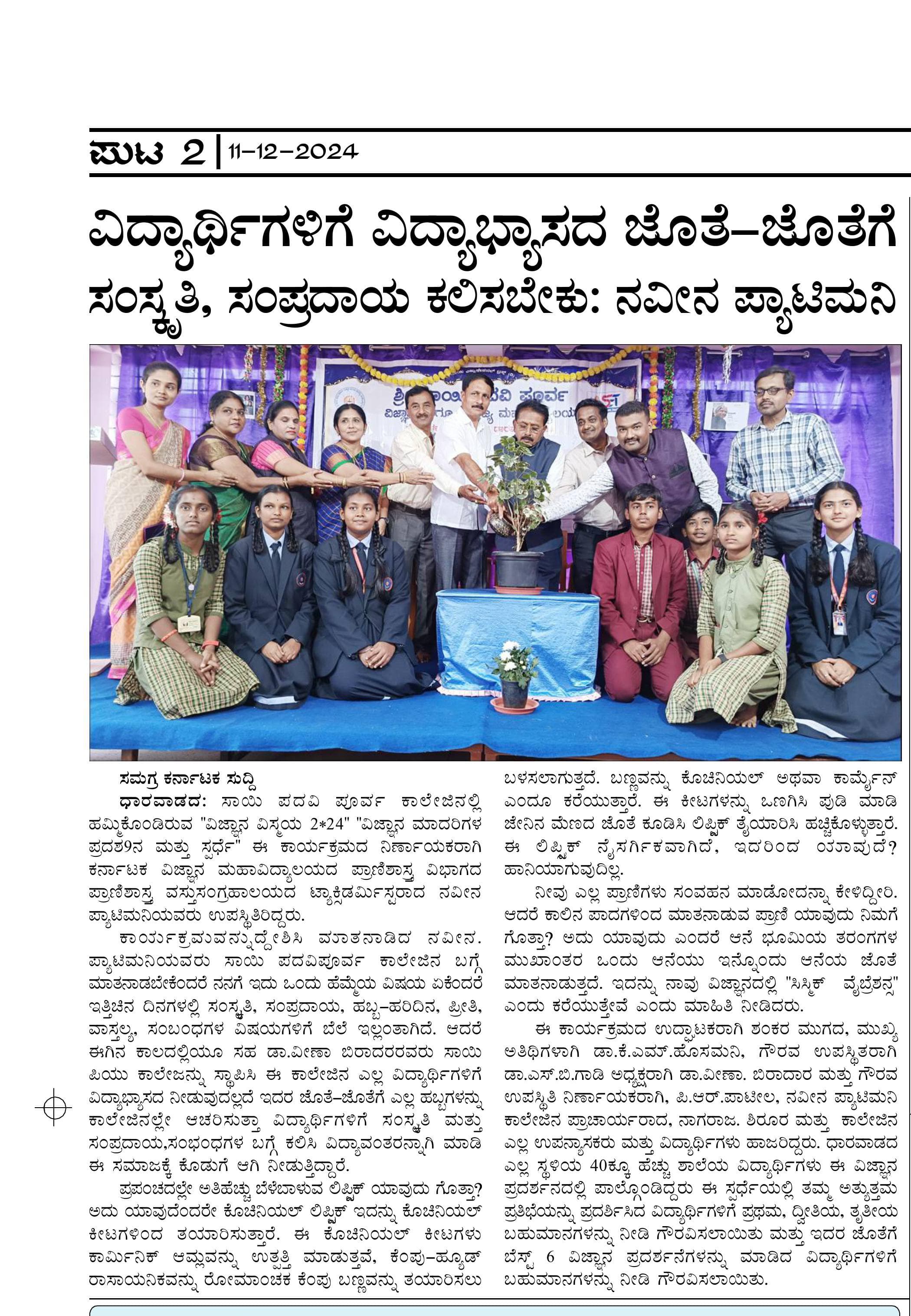Two of the faculty members are recognized as Research Guides of Karnatak University. Since its inception, 26 students have completed Ph.D and the department has received research grants from funding agencies like DST, UGC and VGST. Papers are published from the department in National and International journals.All the teaching staff are student friendly and the department offers courses from B.Sc. to Ph.D.
The Department of Zoology organizes seminars, workshops , training programmes, extension programmes and study tours . B.Sc students are encouraged to take up small research projects and many of them have presented papers in National level conferences and seminars .Student knowledge enrichment programmes are organized by Dept. study circle i.e, Dr.Salim Ali Zoology Study circle. Department has some innovative practices like Vermicomposting, Apiculture , Rain Water harvesting, Construction of fish aquaria etc.
The Department also has two sister departments, viz., Department of Industrial Fish and Fisheries, established in the year 1995. This is a Vocational course which expertise the students in preparing fish aquaria, rearing of ornamental fish, fish farming, fish preservation and other activities are organized like study tours, field trips and hands on training from the field.
Another department is Microbiology, which was established in the year 1997. This Dept. has necessary infrastructure, well equipped laboratory, with various equipment like Autoclave, Colorimeter, BOD incubator, Laminar airflow, Electrophoresis, Bacterial incubator, Hot air oven, Rotatory shaker incubator, Centrifuge, Defreezer etc. catering to the needs of the students. This course teaches microbiological techniques, medical microbiology, food processing and preservation technologies.This Department has the pride of producing many eminent personalities in the field of Life sciences.
DEPARTMENT OF INDUSTRIAL FISH AND FISHERIES
Industrial Fish and Fisheries course was introduced as a vocational course by UGC at Karnatak University’s Karnatak Science College, Dharwad in the year 1994. It was started in the Department of Zoology, Karnatak Science College, Dharwad as anundergraduate course. From the last 25 years, this course is being conducted with optional subject combinations involving Chemistry as the main subject and two allied subjects, namely, Zoology and Botany (known as CZIF and CBIF, respectively). At present, this is a six-semester course (3 years) and minimum eligibility is an intermediate (10+2) in science discipline.
The syllabus for Industrial Fish and Fisheries at UG level using the Choice Based Credit system (CBCS) has been framed in compliance with the model syllabus given by the UGC. The main objective of this syllabus is to give the students a holistic understanding of the subject, giving substantial weightage to both the core content and techniques used in Industrial Fish and Fisheries. Keeping in mind and in tune with the changing nature of the subject, adequate emphasis has been given on new techniques and understanding of the subject. The syllabus has also been framed in such a way that the basic skills of the subject are taught to the students, and the scope of securing a job after graduation will increase.
Industrial Fish and Fisheries is a field that is associated with the Science and Technology utilized in the industrial fishing business. Subjects studied under this degree are the biology of fishes and shellfishes; marine and inland fisheries aquaculture; cold water fisheries, ornamental fisheries, and their culture and management. Students gain information on fisheries marketing, economics and management; harvest and post-harvest technology of fish; fish by-products; fishery microbiology and seafood quality control; fish and shellfish processing technology and freshwater aquaculture and mariculture.
This course also encourages the student to be an entrepreneur in the field of fish culture, aquarium industries, aquaculture, fish food processing industries and research fields related to fisheries. The mission of this course is to educate the students about the conservation and sustainability of fishery resources and aquatic ecosystems by advancing fisheries and aquatic science and promoting the development of fisheries professionals. The training imparted during the UG course of study on “Industrial Fish and Fisheries (IF)” helps the students to understand the diverse mission, which includes the management and stewardship of the nation's freshwater and marine resources, their habitats, sustainable seafood and the recovery of protected fish species. Study tours are also conducted regularly as a part of the curriculum, so as to provide hands-on training to the students.
The alumni of IF division of the Zoology department are now serving in the various fields related to fisheries, such as, research, harvest and post-harvest technology related industries; seafood quality control industries; freshwater aquaculture, mariculture industry and hatchery units.



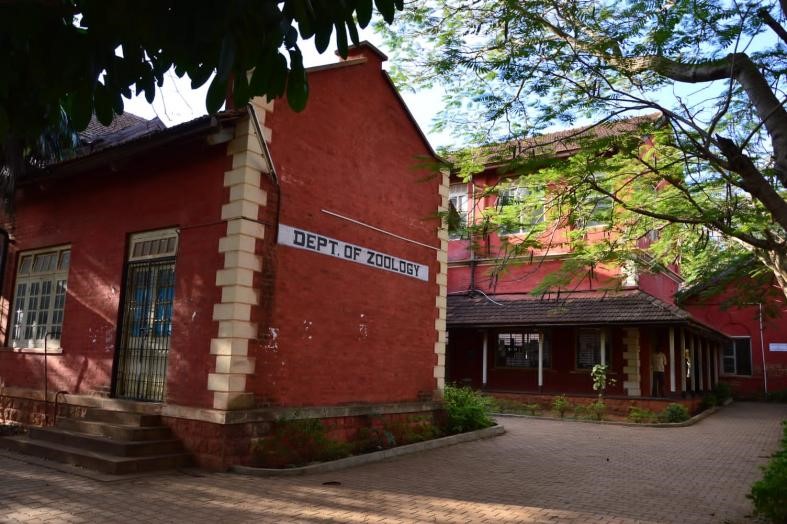
 R. D. Sanakal.jpg)
